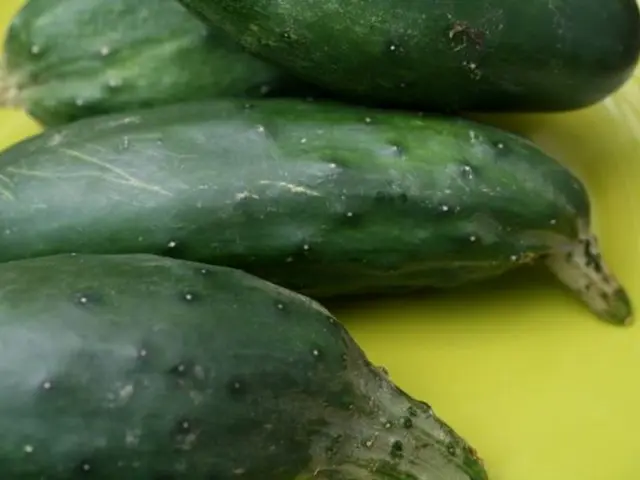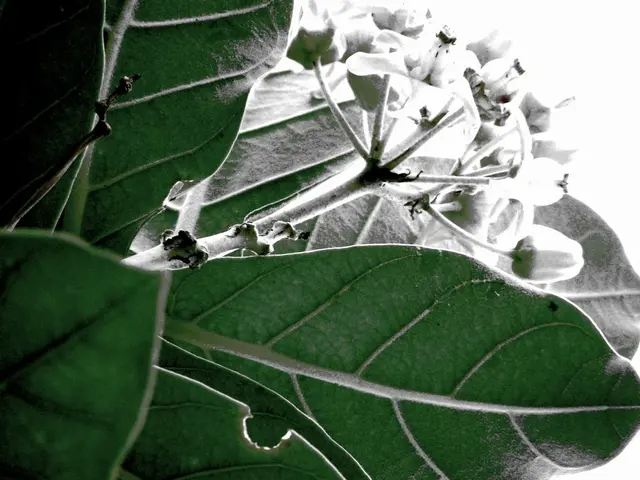Allergy alert: Unanticipated foods that exacerbate your pollen-related issues
Hey there, allergy sufferers! Watch out for these foods during hay fever season.
With the warmer weather upon us, the pollen count is on the rise, and allergy season is just around the corner. Managing symptoms can be tough, but did you know that your diet could also play a significant role? Certain foods have a higher histamine content, which can exacerbate allergic reactions.
Foods to Steer Clear Of During Pollen Season
Histamine is a substance that amplifies allergic responses. To avoid overloading your body during allergy season, it's best to cut back on foods high in histamine.
Aged cheese varieties
Cheeses that have been aged for a lengthy period, like aged Gouda, Parmesan, Emmental, or Brie, contain more histamine and should be avoided.
Smoked meat and cured meats
Meat products such as salami, raw ham, or cervelat should be kept off the menu for pollen allergy sufferers.
Canned goods and pickled fish
Foods like canned herring in tomato sauce, sardines, or smoked salmon have high histamine levels and should be avoided during allergy season.
Certain fruits
In addition to citrus fruits, bananas, pineapple, kiwi, and strawberries can trigger allergic reactions due to their high histamine content.
High histamine vegetables
Vegetables like tomatoes, spinach, and sauerkraut are known to be potential triggers for allergic reactions.
Wheat-based products
Although wheat itself doesn't contain histamine, wheat products such as pasta, flour, and semolina are often poorly tolerated by those with pollen allergies. A possible reason is the long storage time during which histamine can form.
Cocoa and dark chocolate
Dark chocolate, in particular, is high in histamine, so those who are sensitive should take caution when consuming it.
Red wine and alcohol
Red wine has a higher histamine content compared to white wine, up to four times as much. Additionally, alcohol can hinder the enzyme diamine oxidase (DAO) that breaks down histamine in the body, and even release existing histamine.
Beer – Even non-alcoholic
Especially top-fermented beer is problematic as it contains more histamine than bottom-fermented. Even non-alcoholic beer should be consumed in moderation.
Coffee and tea
Caffeine may prove problematic for allergies, as it inhibits the enzyme DAO and can therefore exacerbate symptoms, even without containing histamine itself.
During allergy season, it's best to steer clear of these foods to help manage your symptoms. Instead, opt for fresh, unprocessed alternatives for a healthier and less-reactive lifestyle!
During allergy season, aged cheese varieties like aged Gouda, Parmesan, Emmental, or Brie should be avoided due to their high histamine content. Smoked meat and cured meats such as salami, raw ham, or cervelat should also be removed from the diet. Canned goods and pickled fish, including canned herring in tomato sauce, sardines, and smoked salmon, have high histamine levels and should be avoided. Certain fruits, such as bananas, pineapple, kiwi, and strawberries, as well as high histamine vegetables like tomatoes, spinach, and sauerkraut, can trigger allergic reactions. Wheat-based products like pasta, flour, and semolina are often poorly tolerated by those with pollen allergies due to histamine formation during long storage times. Dark chocolate has a high histamine content, and those with allergies should be cautious about consuming it. Red wine contains more histamine than white wine, up to four times as much, and can hinder the enzyme diamine oxidase (DAO) that breaks down histamine in the body. Coffee may prove problematic for allergies, as it inhibits the enzyme DAO and can exacerbate symptoms. Instead, opt for fresh, unprocessed alternatives for a healthier and less-reactive lifestyle in the realm of health-and-wellness, nutrition, and food-and-drink.








